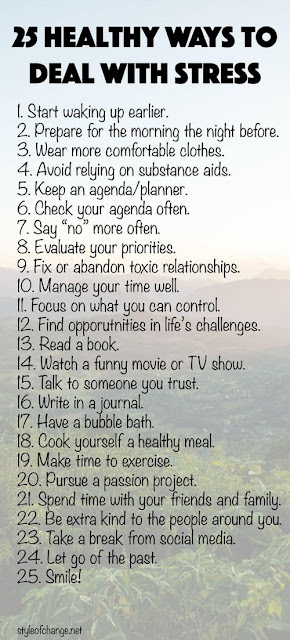Are you wondering how to deal with stress and anxiety? Anxiety disorders have risen in recent years, and people are looking for answers to how to deal with stress and anxiety. Stress can contribute to the development of many illnesses and diseases such as cardiovascular disease, cancer, hypertension, and diabetes. So if you want to maintain good physical health and keep these diseases from developing, it is essential that you learn how to deal with stress. If you want to know how to deal with stress and anxiety, the first step is to find a good mental health professional to help you.
A healthy diet and exercise program will also help you cope with stress and anxiety. The best thing to do is make sure that you are getting plenty of nutrients, especially Vitamin C. Vitamin C can help neutralize certain bacteria that cause infection and will improve your immune system. In addition to a healthy diet, you should always try to avoid alcohol, nicotine, caffeine, and soft drinks. Too much alcohol and caffeine can make you feel stressed and anxious, while too much nicotine and caffeine can lead to insomnia, which can intensify your feelings of anxiety. Exercising regularly will also make you feel better able to cope with stress and anxiety.
Another way to reduce stress and anxiety is to learn some relaxation techniques. A good technique to start with is to spend 15 minutes breathing deeply and slowly, at least five times each day. Deep breathing has been shown to release calming chemicals into the bloodstream, including serotonin, which has a calming effect. Other exercises such as yoga can also help reduce stress and anxiety. However, if you're already feeling stressed and anxious, these techniques may not provide enough relief to actually solve your problem.
A third strategy for dealing with stress and anxiety is to work on your "high-power" muscles, or those muscles that make you feel really gooey inside. Studies have shown that one of the most effective ways to relax is to focus intensely on one area of your body, such as your chest. By working out these highly-charged, high-powered muscles, you can significantly lower your heart rates, improve circulation throughout your body, and take some pressure off your tense nerves.
Along with your high-powered muscles, it's also important to pay attention to your emotions. Emotions are triggered by physical symptoms, so if you find yourself getting overly stressed or anxious, change the physical symptoms you're feeling. If your stomach starts racking up or your body starts to shiver, consciously move your arm in a certain direction to release the tension from your muscles. By paying attention to your own emotional responses, you can learn how to deal with stressful situations that leave you feeling emotionally burned out and overwhelmed.
Finally, consider making an effort to learn more about your own health and fitness. Exercise regularly and eat a healthy, balanced diet. These things seem obvious, but it can be surprising how much impact they can have on your moods and stress levels. If you find yourself feeling particularly stressed and overwhelmed, you should definitely begin to take an interest in learning about how your body and mind respond to different kinds of exercise, for example, yoga and Pilates. Likewise, if you've been consuming unhealthy foods, start eating healthier. Some research has suggested that the effects of a poor diet can be more extensive than initially realized, and these changes may help you in your quest for self-help techniques for dealing with stress and anxiety.
In conclusion, we've discussed three main areas that can help you in your quest for stress management. We talked about the role that your diet and exercise can play in reducing your stress level, we touched on the relationship between high-power and cortisol, and we discussed how to go about self-help for dealing with stress and anxiety. If you're looking for resources about stress and anxiety, be sure to keep an eye out for this Ted Talk. It should help you with some of your own stress management challenges.
